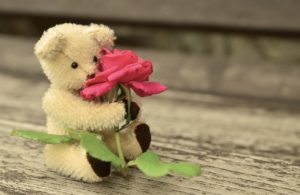Jamie and Kurt are a sweet, successful couple in their early thirties. In spite of loving each other deeply, they often find themselves in conflict over seemingly minor issues, as most couples do. Recently, just one week before their wedding anniversary, they had a particularly hurtful argument. Jamie had expressed her unhappiness about Kurt’s busy schedule and the limited time he finds to spend with her. As usual, Kurt promised to try harder and they got through it. But having not dealt with the real issues at hand, the problem was bound to resurface. Jamie unknowingly began planting the seeds for their next bout when she decided to bring up the subject of their anniversary.
“Kurt, I just wanted to remind you that next week is our anniversary and it‘s really important that we plan something special for us.”
Kurt took a deep breath and responded, “Jamie, you know I don’t really like celebrations.”
“Oh come on Kurt. It’s really important to me.” Nearly pleading, Jamie continued. “When you really love someone, you try to do what is important to them, right? I made the plans last year and now it’s your turn. Why don’t you surprise me…something really romantic! Okay?”
Silent and distant, Kurt gave a slight nod, which was all the assurance Jamie needed that this anniversary would be exceptional. She could barely work that week fantasizing about what Kurt would do to demonstrate his everlasting love. Finally, the day arrived! Kurt had agreed to be home by six o clock. By twenty past six, Jamie was anxious. With each glance at the clock, her pacing quickened. At last, Kurt walked through the door looking tense and clutching a bouquet of red roses. Jamie took the roses with a wary smile, anticipating what was coming next. Without even so much as a glance, Kurt turned around, got a beer out of the fridge, and sank into the couch, grabbing the remote control.
Jamie watched intently, feeling her blood turn to ice. “That’s it?” she asked.
“That’s what?”
“That’s it? It’s our anniversary!” Jamie’s tone grew sharp. “You said you would plan something special and romantic and this…” shaking the roses in her clenched fist, “this is it?”
“I never said I would do anything,” Kurt retorted. “I told you it wasn’t my thing.”
“Don t lie to me! You nodded yes!”
“No, I didn’t. I didn’t agree to anything. You always want me to prove that I love you. I hate that! Even if I did want to do something for our anniversary, I certainly wouldn’t want to after you tell me you expect it! Sullenly, Kurt turned back to the TV. You take all the fun out of everything.
Jamie dissolved into tears. “Well if you knew how to show me you loved me, I wouldn’t have to say anything.”
Without a word, Kurt turned off the TV and left the house.
Once again, Jamie and Kurt were left feeling unheard and unappreciated. Their conditioned response was to blame each other for their hurt feelings and angry behavior.
In order to understand how things went so wrong, we need to look at the interaction in terms of their intention to learn or their intention to protect.
Jamie starts out trying to control Kurt by making him feel guilty. Kurt, not wanting to be controlled and not able to communicate how being controlled makes him feel, moves into resistance, which is his form of control. Jamie thinks that laying on more guilt (control) will accomplish her objective to have a romantic anniversary. Since Kurt is frustrated with his inability to express his brewing feelings, he moves into silence (control). Finally, when Kurt comes home late and sits on the sofa, he demonstrates passivity (control) to which Jamie responds with anger (control). Kurt uses more resistance (control) and Jamie uses more anger and guilt (control). Kurt gets defensive (control) and disappears (control). Attack, resist, blame, defend, on and on…Sound familiar?
Neither Kurt nor Jamie want to hurt each other. Unfortunately, they are also not open to learning about their own feelings and behaviors, or each other’s. Resorting to controlling behavior keeps them safe and eliminates the need to effectively communicate their fear. Fear is what motivates their intention to control and in the face of fear, their love dissipates.
Instead of each person taking full responsibility for his or her own happiness and unhappiness, they gave that job to each other. Imagine that your feelings are a child within. Imagine what would happen if you had an actual child that you kept trying to give to others to take care of. That child would feel scared and insecure most of the time. Yet that is exactly what happens when we make others responsible for our feelings – our child within feels scared, insecure, angry, depressed, and anxious. It is only when we take responsibility for our own feelings, which we can do through the intent to learn, that we will feel secure enough to give up the need to control and resist control.
It would be easy to blame Jamie for their problems – if only she didn’t get so needy and angry, everything would be fine. It’s just as easy to blame Kurt – if only he was more attentive and caring. Yet until both Jamie and Kurt are willing to take responsibility for their own feelings, and until loving themselves and each other is more important than controlling or not being controlled, their conflicts will continue.
The act of taking responsibility has nothing to do with blame or fault. Each person taking full responsibility eliminates the need to be right and that is an essential step to a mature and reasonable outcome. What if Jamie had started with, “Kurt, I love celebrating our anniversary and you hate it. Can we talk about what would work for both of us?” They could have more easily resolved the issue. And what if Kurt had responded to Jamie’s initial controlling statements with caring and openness instead of resistance, such as, “Honey, you know I don’t like celebrations, so please don’t expect me to plan something. Let’s talk about how we can make it work for both of us.” Either one of them could have moved into an intent to learn and taken responsibility for creating what they wanted.
Each of us has the choice to begin to notice our intention.
If each of us changed our intention from controlling to loving, and learned to take responsibility for our own feelings, we would each be participating in healing our relationships and thereby healing our planet.






